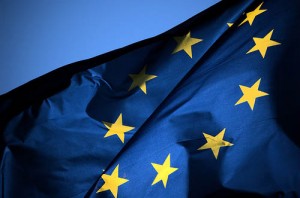
More evidence that low-calorie sweeteners are bad for your health
Studies show that artificial sweeteners can raise the risk of hypertension, metabolic syndrome, type 2 diabetes and heart disease, including stroke.

A long and hard-fought battle over pesticides levels in food has reached an important milestone following a decision by the European General Court.
Pesticide Action Network (PAN) is a group of over 600 organisations and individuals working to minimise the negative effects of harmful pesticides, and to replace their use with ecologically sound alternatives. In 2008, PAN and one of its members, Stichting Natuur en Milieu, asked the European Commission to review a regulation that massively relaxed pesticide residue standards in food.
The new rules meant dietary exposure to pesticides rose significantly. Additionally, it appeared several hundred of the new limits on pesticide residues on food were unsafe under the new legislation – according to the EU’s own safety rules.
The Commission refused to review its regulation and asserted that NGOs had no right to request a review of this type of act.
Earlier this month, the court ruled that the Commission’s refusal to review was wrong. After four years of campaigning, the Commission will now need to agree to either review its pesticides rules to ensure they are safe or justify why it considers its decision does not need to be reviewed.
A significant development
As well as being a victory for anyone concerned about pesticides in their food, this is a significant development in how European courts interact with green groups, and could signal a shift towards more effective enforcement of environmental rights.
It is the first time a non-governmental organisation (NGO) has been allowed to challenge an EU institution’s refusal to review one of its regulations. This is in contrast to companies, which have long been able to challenge at least some of the actions of the EU’s official bodies.
The court’s ruling is particularly meaningful because it finds the EU’s Aarhus Regulation, which applies the international Aarhus Convention to the EU institutions, is not in line with the Convention, an international treaty to which the EU is a signatory.
This ground-breaking agreement links environmental rights and human rights and grants citizens important rights of access to justice as well as participation in environmental decision-making. It goes to the heart of the relationship between citizens and governments, and sets out important principles on how democracies should operate to ensure government accountability, transparency and responsiveness on environmental issues.
The next step
The court found that the Aarhus Regulation too narrowly defined which of the EU institutions’ acts could be challenged and this is in contravention of the Aarhus Convention. The very narrow definition of the acts that could be challenged under the Regulation is one of the most important violations of the Aarhus Convention by the European Union, so the court’s formal recognition of this incompatibility is very important.
However, this is only a first step.
The courts now need to rule on whether NGOs have the right to challenge the actual substance of an institution’s measure – in this case, that would mean having the right to challenge the Commission’s decision to relax pesticides regulations.
Last year, following representations from ClientEarth, the Aarhus Convention’s compliance committee ruled that the EU courts must change their rules on giving green groups ‘standing’ in the courts: to date, no environmental group has ever been granted permission to challenge such a measure adopted by the Commission or its associated institutions in the European courts.
This finding has yet to be implemented by the courts, but if they continue the logic demonstrated in this decision, then these rules should change as well. The doors could be opened for European citizens to effectively enforce their environmental rights in court.
In response to the green groups’ victory, the Commission will now need to either review its decisions or explain why it considers them to be lawful. If the new decisions remain in breach, environmental groups could bring another complaint, and it will make clear whether the Court is willing to go further and actually allow them to challenge the substance of the institutions’ decisions.

Please subscribe me to your newsletter mailing list. I have read the
privacy statement